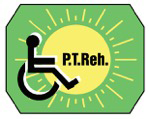


|
Current issue
Archive
Manuscripts accepted
About the journal
Editorial board
Reviewers
Abstracting and indexing
Contact
Instructions for authors
Publication charge
Ethical standards and procedures
Editorial System
Submit your Manuscript
|
1/2023
vol. 37 abstract:
Review article
Is there an association between traumatic peripheral lesions and cognitive impairments in adults? A scoping review
Xue Zhang
1
,
Tamara Tse
1
,
Tianyi Li
1
,
Maryam Zoghi
2, 1
Advances in Rehabilitation, 2023, 37(1), 1–11
Online publish date: 2023/03/02
View
full text
Get citation
ENW EndNote
BIB JabRef, Mendeley
RIS Papers, Reference Manager, RefWorks, Zotero
AMA
APA
Chicago
Harvard
MLA
Vancouver
The aim of this scoping review was to critically review and synthesize the evidence concerning the relationship between traumatic peripheral lesions and cognitive impairments.
Five electronic databases (Medline, Cinahl, Psycinfo, Embase, and Cochrane Library) were searched in their entirety using the two key words “cognition” and “trauma”. An additional manual search was conducted. All inclusion criteria comprised English language, an assessment of cognition, and the study participants experienced acute peripheral lesion or physical trauma and were aged between 18 and 65 years. The articles were screened for eligibility by two independent reviewers. Disagreements were resolved by discussion or consensus with a third author. A total of 11737 records were identified, of which 10 met the inclusion criteria. Whiplash injury, brachial plexus injury, soft tissue injury around the cervical spine, and fracture were found to be associated with cognitive impairments. The earliest cognitive assessment time point was one-month post injury, while the latest counterpart was 444 months. Cognition was assessed using 20 unique instruments, targeting nine distinct cognitive domains. An overall positive association was found between traumatic peripheral lesions and cognitive impairments. Therefore, further longitudinal research is needed to monitor the changes in cognitive functions post physical trauma. keywords:
cognition, cognitive impairments, injury, peripheral lesions, physical trauma |
    |